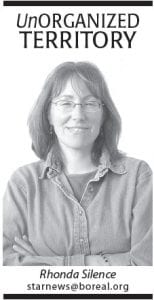A few weeks after the 2010 election, I was fortunate enough to join a few friends for a visit with David Dill (D-Tower) of the Minnesota House of Representatives. I was happy that Representative Dill had come through his kidney transplant surgery so well. I was also glad that he had been reelected. It was especially good to hear how hopeful he was that he would be able to work “across the aisle” with the new Republican majority.
Then I teased him about having to pack up his office.On a visit to the state Capitol last year, I was surprised to see that all the DFL legislators were clustered together on the top floors of the house office building. The Republicans seemed to be crowded in a tiny, lower level section. I asked Representative Dill if he now had to move to the basement.
To my surprise, he said yes. Apparently, the Speaker of the House has a cushy office on one of the top floors. And according to tradition, the offices around the Speaker’s office are assigned to the members of his or her political party.
Representative Dill didn’t seem to mind. He wasn’t emotionally attached to his office, which actually wasn’t as nice as that of Senator Tom Bakk, our other Minnesota legislator. But I don’t think Senator Bakk will mind too much either. Our state representatives have frequently voiced the opinion that they are citizen-representatives. They are not meant to plant themselves in their congressional offices and remain there forevermore. They have each kept their “day jobs” and continued to be in touch with their constituents.
But I wish they would speak up about the office shuffling going on. I don’t think our tax dollars are well spent in this complicated rearrangement of cubicles and office furniture. As you read this column, movers are probably hand-trucking cartons of books and papers from one floor to another in the House of Representatives and the Senate office buildings. I wondered, after talking to Representative Dill, if the same thing happened on the national level. I didn’t think too much about it until yesterday when I received an e-mail from John Schadl, an aide to US 8th District Congressman James Oberstar (D). Schadl has been a great help to me through the years, promptly replying to questions from the News-Herald
and arranging meetings with the venerable congressman when he traveled to the North Shore.
I was surprised to see that Schadl, too, was moving. He said he was sending one of his last messages from the Rayburn House Office building. The next day, the office would be moved to “a cubicle in the basement with a single computer and a phone.” Ever professional, Schadl said, “Of course, the news doesn’t stop,” and he provided updated contact information.
I’m guessing the outgoing legislators are asked to move to the temporary quarters so rearranging of offices can take place before the new representatives arrive. Again—how much is this costing the taxpayer?
In addition to the financial cost, there is the chaos of reorganizing all those offices. There must be an easier, more consistent way to handle legislative transitions. Can’t the speakers and senate leaders just trade places and all the others just stay where they are? Why does the speaker or senate leader have
to be surrounded by members of his or her party?
Perhaps a more equitable arrangement could be reached. Perhaps office space could be distributed based on seniority. Or alphabetically by first or last name. Or by height or age—anything but party affiliation. I don’t like the idea of political groups huddled together in this wing or that wing.
Maybe it would work better if representatives and senators were all mixed together—DFL and Republican working side-by-side or across the hall. Maybe it would make our politics less divisive if the groups met each other over coffee in the break room and chatted at the water cooler. Maybe then it wouldn’t be “us versus them” in our legislature—and in our country.
I am for a government rigorously frugal
and simple, applying all the possible
savings of the public revenue to the
discharge of the national debt; and
not for a multiplication of officersand
salaries merely to make partisans, and
for increasing, by every device, the
public debt, on the principle of its being
a public blessing.
Thomas Jefferson



Loading Comments